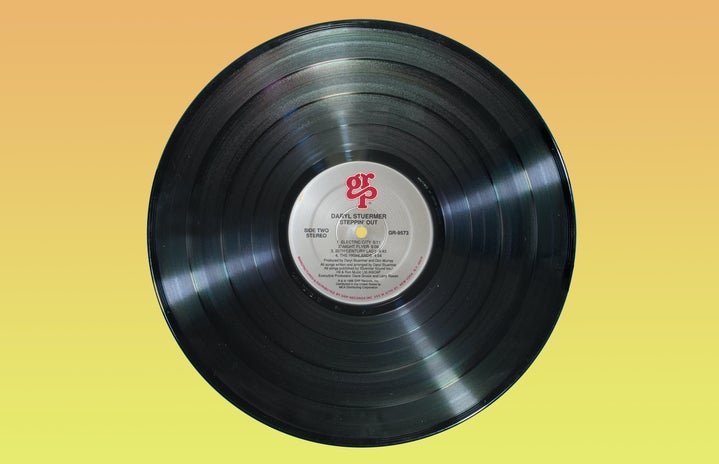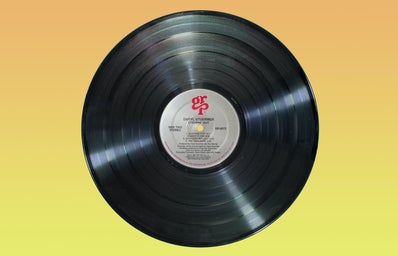The use of music, for decades, has been a vessel for political change and activism.
In 2022, Ukrainian president Volodymyr Zelensky delivered a pre-recorded speech at the Grammys urging for peace after the start of the Russia-Ukraine war. Singer John Legend brought out two Ukrainian singers and one Ukrainian poet as he performed his song “Free” on the Grammy stage. The Grammy’s also partnered with Global Citizen that same year for their “Stand Up For Ukraine” campaign.
This same effort was not displayed for Palestine this year.
The 66th Annual Grammy Awards were held on Feb. 4 at the Crypto.com Arena in Los Angeles. During the award ceremony, the CEO of the Recording Academy, Harvey Mason Jr., gave a speech to acknowledge the killing of 360 music fans and the kidnapping of 40 at the Israeli Supernova music festival.
“Let us all agree that music must remain the common ground upon which we all stand together in peace and harmony,” Mason said. He then explained that behind him stood a string quartet made of musicians of “Palestinian, Israeli and Arab descent” and that together, “they achieve something beautiful.”
However, nowhere in his speech did he mention the more than 300 Palestinian victims who were also killed that same day. In fact, there was no mention at all of the 29,000 plus Palestinians who have since been killed by Israel.
According to the Palestinian Health Ministry, 1 in 100 people in Gaza have been killed since Oct. 7, with 250 Palestinians being murdered every day by the Israeli military. Moreover, 483 Palestinians have also been killed in the West Bank, a different region in Palestine under different authority.
Palestinians have been unable to stand in peace and harmony, as alluded to in Mason’s speech, because over the course of the past four months, more than 100,000 people have been killed, injured, or reported missing in Gaza.
It is abhorrent to minimize the genocide against the Palestinian people to a metaphor centred around the idea that people from different backgrounds can play music together in harmony. It’s clear that there is a set of double standards when it comes to Palestinian victims.
The closest the Grammys came to honouring Palestinian victims was during Annie Lennox’s tribute to Sinead O’Connor, where she used her performance to advocate for a ceasefire. She ended her performance by saying, “Artists for ceasefire. Peace in the world.” After this, CBC allegedly cut off her microphone, sparking outrage amongst viewers who believe this was done intentionally. With her statement, she became the first artist this year to call for a ceasefire during a major awards show.
The fact that Annie Lennox’s statement was only a general plea for world peace and a call for a ceasefire, without mentioning Gaza or the lives lost, speaks volumes of the censorship taking place at the Grammys. Lennox, being the first and only music artist to do so, highlights the suppression occurring throughout the music industry as a whole, where people are afraid to take a stand due to backlash.
Even though Lennox had not mentioned Palestine nor Israel, she issued a statement the following day to clarify that she is “neither anti-semitic nor pro-Hamas” and that her stance is “totally from a humanitarian standpoint.”
Calling for a ceasefire being met with such accusations is inflammatory and not at all representative of Lennox’s statement. It also shows that no matter how neutral a stance one takes, there will always be retaliation.
While the music industry itself may not support Palestinians, many other music artists did show up for Palestine.
Members of the band boygenius came to the event donning red “Artists4Ceasefire” pins to represent the organization under the same name calling for a permanent ceasefire in Gaza.
Aja Monet, poet and writer, carried a purse in the shape of a watermelon, a symbol of resistance amongst Palestinians due to its strong resemblance to their flag.
The most brave display of support came from bassist and singer Esperanza Spalding, who wore the keffiyeh on the Grammys red carpet. The keffiyeh is a powerful and significant symbol of Palestinian history and the struggle against Israeli occupation. Wearing one is a direct show of solidarity with Palestine.
In another bold show of support, hundreds of pro-Palestine protesters and activists gathered outside the Crypto.com arena ahead of the Grammys in an attempt to block access to the roads leading to the ceremony. Los Angeles police responded by dispersing the crowd and arresting many protesters.
The Grammys showed their audience that while they may not care about Palestine, countless others will continue to voice their support for Palestine and do everything they can to achieve peace.


